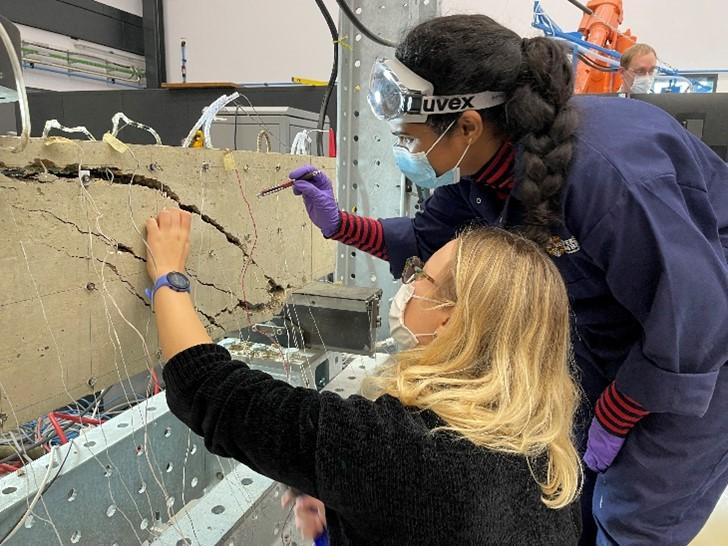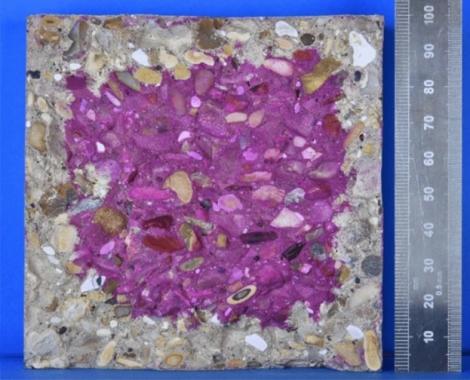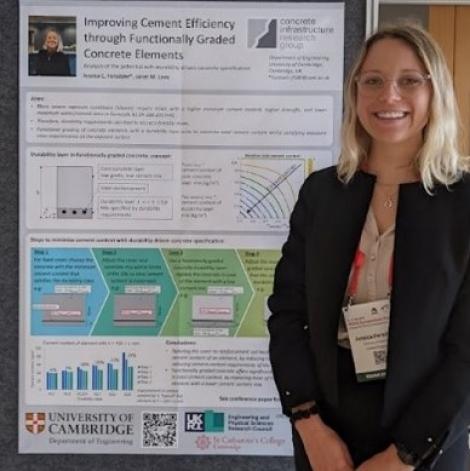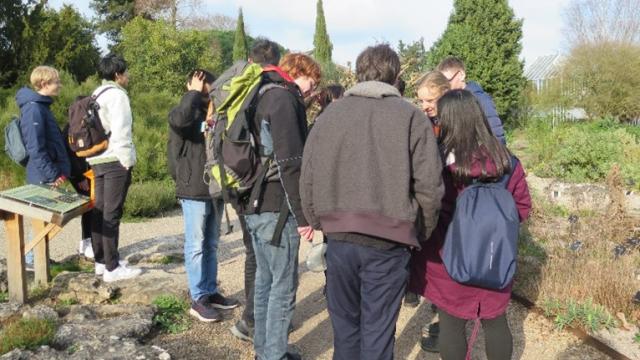
A postgraduate student who remained at St Catharine’s after her undergraduate degree has been exploring how concrete is affected by the absorption of carbon dioxide (CO2) from the atmosphere, a process known as carbonation. Jess Forsdyke (2015, Engineering) is now an Engineering PhD candidate and hopes her research will improve performance-based design of new concrete structures and the assessment of existing concrete infrastructure.
Jess explains, “Concrete is the most heavily used synthetic material on the planet and currently requires large volumes of cement, manufacture of which is responsible for an estimated 5–8% of global CO2 emissions, driven by the sheer volume that’s used today. Although carbonation is cited by many cement manufacturers as a key to net-zero emissions in the industry, concrete never absorbs as much CO2 as we see emitted during the creation of the cement it uses, and this process causes significant damage to steel used alongside concrete in modern reinforced structures.
"For environmental reasons, it is reassuring that breakthroughs like the zero-emission cement being developed by Professor Julian Allwood (2018) and his team are on the horizon, but we also desperately need to know more about how concrete behaves when exposed to growing CO2 concentrations, to make better decisions about the design and maintenance of concrete structures.”
While she finishes her PhD, Jess is based at the University of Cambridge’s Concrete Infrastructure Research Group, which develops sustainable infrastructure, through an improved understanding of existing infrastructure assets, the use of new materials, and the creation of innovative structural solutions. With lots of unanswered questions about concrete carbonation, her thesis aims to improve understanding through a combination of experimental research and analytical modelling techniques.
Some of the findings from Jess’s PhD research were recently published in a new paper in the journal Materials and Structures. She took two different approaches to assessing concrete carbonation and compared how well these fit experimental results collected by herself and others in accelerated test conditions, which enable quick prediction of carbonation behaviour in real-world conditions.
Jess added, “I am delighted to have contributed to advancing our understanding of concrete carbonation, and appreciate the support I’ve received every step of the way from Professor Janet Lees, who has supervised both my Master’s and PhD degrees. This paper shows that even the current models being used in practice need scrutinising and refinement, because any assumptions, however small, can have an influence on the efficiency of material use based on these models.”
Alongside her studies, Jess was elected to represent other postgraduate students as Co-President of the St Catharine’s Middle Combination Room (MCR) from 2019-2020 and 2020-2021 and has been a member of the College’s Engineering Society throughout her time here. While she will be sad to leave College after eight years when she submits her thesis, she is excited about what the future holds:
“I am hoping to remain active in research with the Concrete Infrastructure Research Group in the short term, with a view to working in environmental strategy longer term. I’m getting a head start by assisting the St Catharine’s Green Working Group as the College community plans how it is going to achieve net zero emissions by 2040.”
|
|
|







